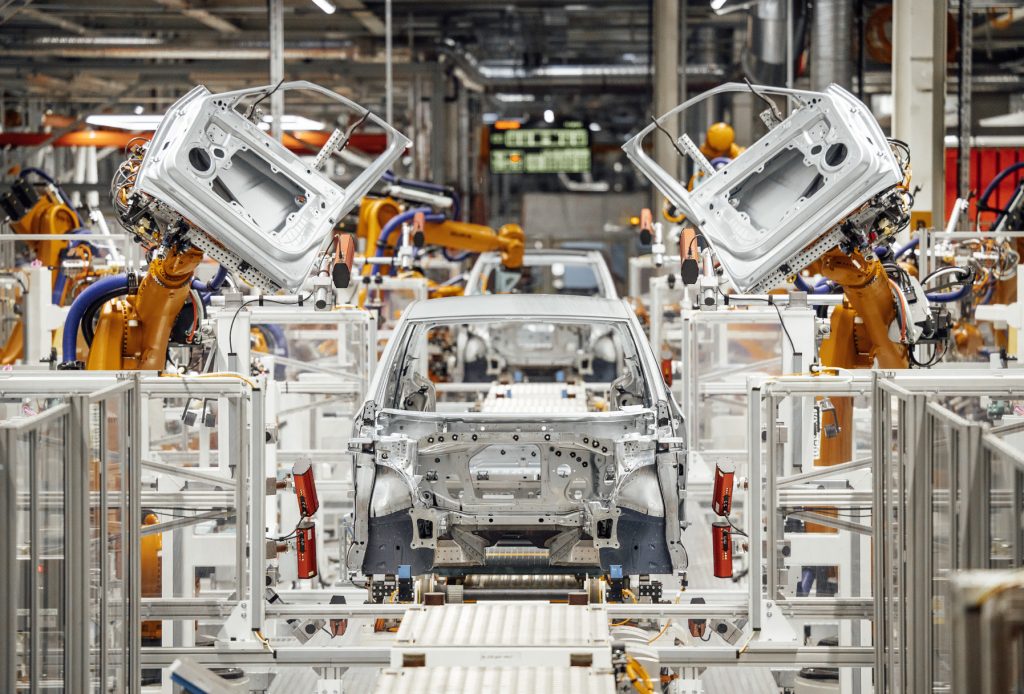Today, we reveal the first electric SUV for Volkswagen in America – the ID.4 EV. While it’s new to you, it’s something we’ve been working on for a few years now, and we’re proud to finally share it with the world. But it’s not just the launch of a car – it’s our biggest step yet on our new path to change the future of driving.
Our past has fueled our future and changed the way we operate as a company. It’s made us even more committed to a more sustainable future, one in which we plan to reduce our carbon footprint by 30 percent by 2025. To do so, we need to bring EVs to the mass market and help lead the globe, and the auto industry, toward a more sustainable future. We have one of the largest EV investment plans in the world, at nearly $35 billion, with the goal of selling one million EVs per year worldwide by 2025 and launching more than 70 electric models worldwide across the Group brands by 2029.
To do that, we want to make EVs accessible for the millions, not just the millionaires. The ID.4 EV is designed to give consumers the SUV they want – reliable, smart, affordable – and it just happens to be electric. It’s fun to drive with rear-wheel power (with optional AWD coming next year), a low center of gravity and instant torque. And pricewise, it falls into the sweet spot of the market. We have designed it to do all the things compact SUVs do today, in package you can charge at home.

We know more and more buyers want a more sustainable future, and we want our owners to be equally as passionate about our goals to help reduce carbon emissions. In Europe, we’ve joined with charging networks to provide renewable sources of energy to EV drivers, and we’re looking to find similar solutions in the United States. When the ID.4 arrives at a Volkswagen dealer, our plan is to have measured and offset the carbon emissions so that the vehicle is net carbon neutral from manufacturing to delivery – a first for any automaker in the United States.1
But our commitment to a carbon-neutral goal isn’t just one vehicle. Last year, Volkswagen Group committed to the goals of the Paris Climate Agreement by pledging to make our business carbon neutral by 2050. When we say “business,” we mean everything from hauling metal to our factories to our trucking routes to recycling the batteries from our electric vehicles.
We have already started on our way towards this goal. For example, earlier this year, Volkswagen Group became the first automaker to use ships powered by liquified natural gas (LNG) to transport vehicles across the ocean. We also opened operations at the Port of Baltimore, allowing us to considerably cut vehicle transport miles to our mid-Atlantic dealers.

We’re also working to break down the CO2 impact across the individual lifespan of our vehicles – from raw materials to recycling – on all new models moving forward. And we intend to look beyond EVs, for ways to help reduce the carbon outputs of our gasoline-powered vehicles, through steps such as hybrid engines, lightweight materials and powertrain improvement.
Last November, we broke ground on a $800 million new manufacturing facility at our plant in Chattanooga, and starting in 2022, we plan on assembling the ID.4 SUV and other EVs for America there. This will create about 1,000 jobs in Tennessee and other states and includes a 198,000–square-foot plant facility for the assembly of Georgia-built battery packs.
The ID.4 EV symbolizes a shift in not only the way we do business, but how we want the world to think about – and drive – Volkswagen. Lots of people want something more sustainable to drive today, but what has come so far hasn’t always met their needs or their budgets. EVs are the future, but only if they have the range and functionality owners expect at a price they can afford. With the ID.4 EV, the future can finally find a home in your driveway.
